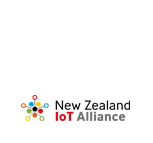Much like the rest of the world, New Zealand organisations have experienced significant supply chain disruptions since the onset of the global pandemic and as a result of global events. These span domestic and international delivery delays, supply constraints, and increases in equipment and transport costs.
It is unlikely supply chain issues will be resolved any time soon. So how do businesses navigate these issues? Which impacts their customer experience, idle or lost assets, cost increases and untimely their bottom line. Large scale track and trace IoT deployments have been proved to be an effective strategy to manage large volumes of moving assets, which demand accurate, timely data providing location and condition information to avoid delays, waste and operational issues. This asset data from large scale IoT enabled track and trace solutions, is essential for operations to see everything, do less, know more, and ultimately deliver a better customer experience.
Low cost, long battery life (up to 7 years), sending just the data which is important, IoT track and trace devices can connect physical assets to the digital world, providing a range of data points including :
- GPS Location
- Wi-Fi based location (when assets are indoor locations)
- Tamper detection
- Temperature
- Humidity
Where service providers such as Loscam which hire out IBC stillages and foldable bins which have deployed these IoT trackers on their hire out assets have benefited for higher asset utilisation, less waste and loss and end-to-end visibility at all times.
Similarly AGP, New Zealand’s largest glass manufacturer deployed IoT Track and Trace devices on their full range of 1,750 purpose built glass trolleys. AGP can easily see in real time via a web platform where each glass trolley is at a glance, get a warning when trolleys have sat idle for more than three days at a customer’s premises, which means they are getting their high value trolley back quickly to fulfil the next set of orders.
What’s Happening at IoT Alliance?
Advanced Manufacturing Industry Transformation Plan:
The Advanced Manufacturing Industry Transformation Plan draft was launched for public consultation last week. This draft identified the importance of advanced manufacturing for Aotearoa, stating that it makes up 10% of our economy and is our largest contributor to exports, with export values of over $44 billion dollars in 2020.
Our government has identified that the advanced manufacturing sector has the potential to increase productivity, produce higher wage jobs, and allow Aotearoa to become a globally competitive low emissions sector through this new strategy. As part of the Advanced Manufacturing Industry Transformation Plan, there is a strong inquiry in emerging tech being developed with industry 4.0 through the implementation of technology such as IoT, AI, digital twins, virtual reality, robotics and automation to assist in improving the use of data to increase productivity and upskill our workforce.
NZ IoT Alliance will be producing a submission to highlight the importance of the internet of things alongside the employment of other technologies. We welcome your involvement contributing your thoughts and opinions in our submission.
If you would like to be involved and collaborate on this, please reach out to our team. We also highly encourage you to produce your own submission to increase the awareness and importance of location intelligence in the advanced manufacturing sector. You can find more information on the MBIE website and make a submission here.
Submissions are due by 5 pm on 13 July 2022.
Smart Cities Working Group
The NZ IoT Alliance, in collaboration with The Smart Cities Council Australia New Zealand, have proposed the establishment of a Smart Cities Working Group to bring together the Internet of Things solution ecosystem for smart cities. This will enable more liveable, workable and sustainable cities, towns and regions across Aotearoa New Zealand.
The purpose of this Working Group is to investigate and promote the IoT innovation being developed in New Zealand in order to support smarter cities, connect key stakeholders to drive this innovation, and grow the NZ IoT Alliance ecosystem. For more information please view our website.
Last week we sent out a survey to capture information on what is being developed to help raise awareness and promote our New Zealand IoT ecosystem. In case you missed it, you can participate in our survey here.
Cyber Security Working Group
Cyber security is fast becoming one of the most sought after skills in the tech space. It’s estimated that there are currently 3.5 million unfilled cyber security jobs currently available globally. From threats of software attacks, intellectual property theft, cloud and network hacking, as well as data and information extortion, it’s no wonder that in this ever-increasing data centric world this market is exploding in demand.
Innovative data capturing technology powered by IoT continues to be vulnerable to security risks. Our cyber security working group aims to investigate the current cyber security issues in the IoT space and explore current and emerging solutions being developed in New Zealand. If you wish to be part of growing our IoT cyber security ecosystem and join our working group, please contact us for more information.
Ngā mihi nui,
Alison Mackie, NZ IoT Alliance Executive Director






